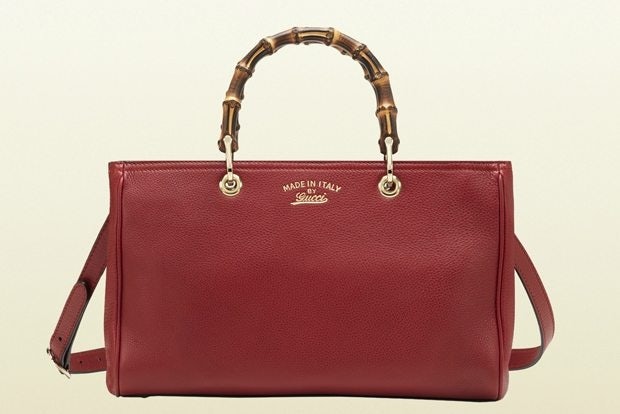
Daigou merchants are popping up everywhere to take advantage of China's e-commerce boom (and high tariffs). (Gucci)
Online shoppers in China thought they could rejoice when they realized they could avoid high local taxes and buy their favorite Gucci bags for a fraction of the price from daigou (代购) sellers. The term, which loosely translates into “buying on behalf,” refers to a system in which people living or traveling overseas buy luxury goods in low-tax countries and sell them in China for prices far cheaper than what they could find domestically. However, it turns out that shoppers may have more to worry about than they think. A recent article from Chinese tech news site IT Times discovers that many of these daigou sellers’ assurances of authenticity turn out to be empty promises, and this counterfeit culture, according to the article, is deeply ingrained in the daigou industry.
Import tariffs and luxury taxes are steep in mainland China—with duties of up to 50 percent on cosmetics, one of the dominant daigou categories, according to the Financial Times. Prices are significantly cheaper via daigou, creating huge incentives to use this method. A search for the term on Taobao, China’s largest e-tail site, shows over 285,000 merchants acting as daigou all over the world. Financial Times cites a 2013 China E-Commerce Research Center report that says the daigou market grew 19-fold between 2008 and 2012 when it reached 48 billion yuan ($7.7 billion), and estimates that it rose again to 74 billion yuan ($11.9 billion) the following year. A report by Bain & Company last year shows that that nearly 60 percent of China’s luxury consumers have used a daigou channel to buy goods, and half of those who haven’t would consider doing so in the future.
However, the IT Times recently reported that many consumers taking advantage of this duty-evading industry might end up with counterfeit products. The IT Times interviews a Suzhou daigou supplier who specializes in the export of imitation cosmetics products, whose products are then portrayed as “foreign” luxury with their value doubled. “There is a large trading company in the United States specializing in the acquisition of high-quality imitations, where upon receiving our products, they make some adjustments to them and sell them back to China,” says the supplier. These “adjustments” can include the addition of details like foreign shipping labels or fake receipts to make the deal look more believable. “For Chinese people or students in the United States, if they want to become daigou merchants, they only need to get this company’s contacts, and the company will supply them with the counterfeits to sell and ship back to China.”
It is worth noting that the Chinese media has been attacking e-commerce companies recently. CCTV blasted e-tailer Alibaba last month as part of its Consumer Rights Day Gala, and various Chinese news sites have been covering e-tailers’ refusal to honor the country’s new seven-day return policy law when it comes to luxury purchases. The Chinese government has also taken steps in 2012 to tighten regulations regarding overseas buying, and it’s possible that this article by Shanghai-based IT Times is a development of that trend.
Despite the IT Times’ warnings about rampant fakes among daigou sales, it seems unlikely that this sector of the economy will cool off any time soon, as long as luxury goods stay at their elevated domestic prices.